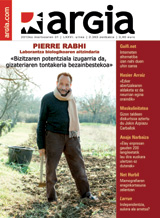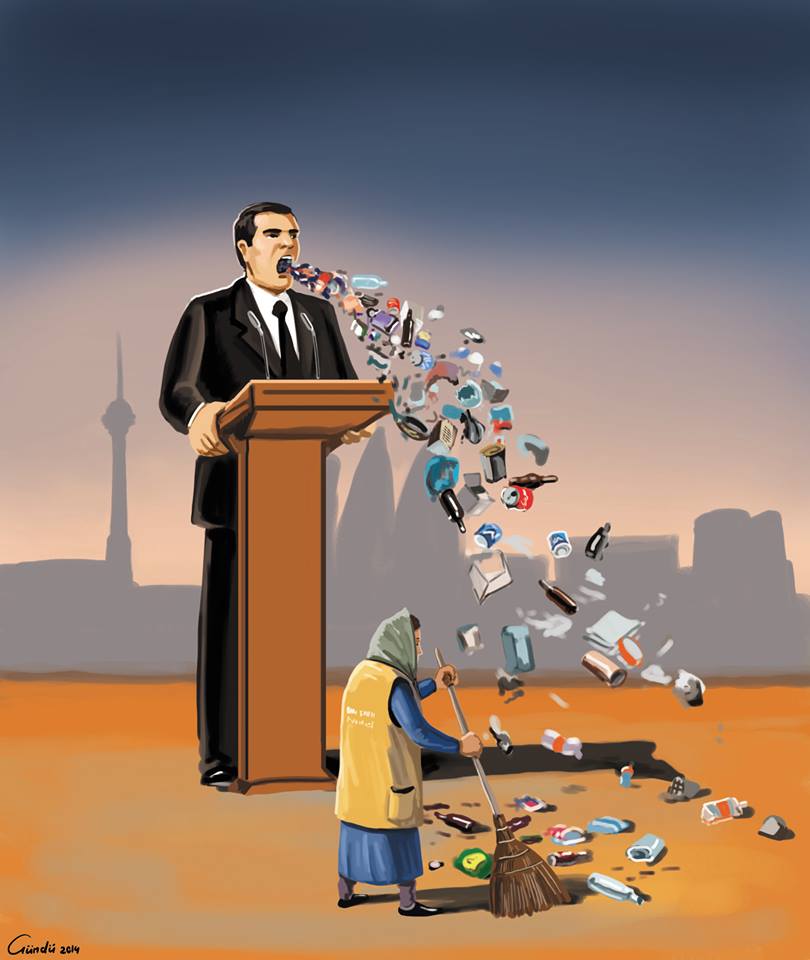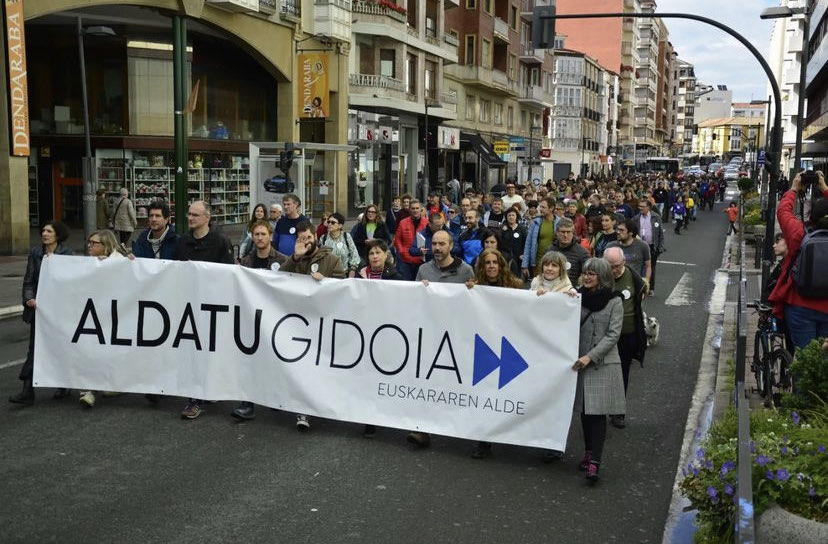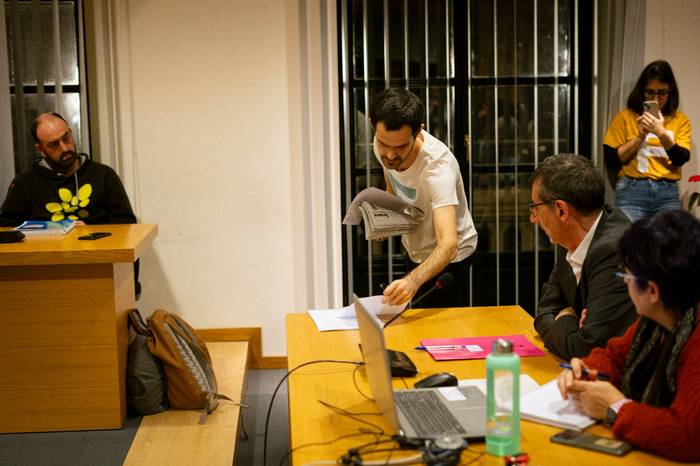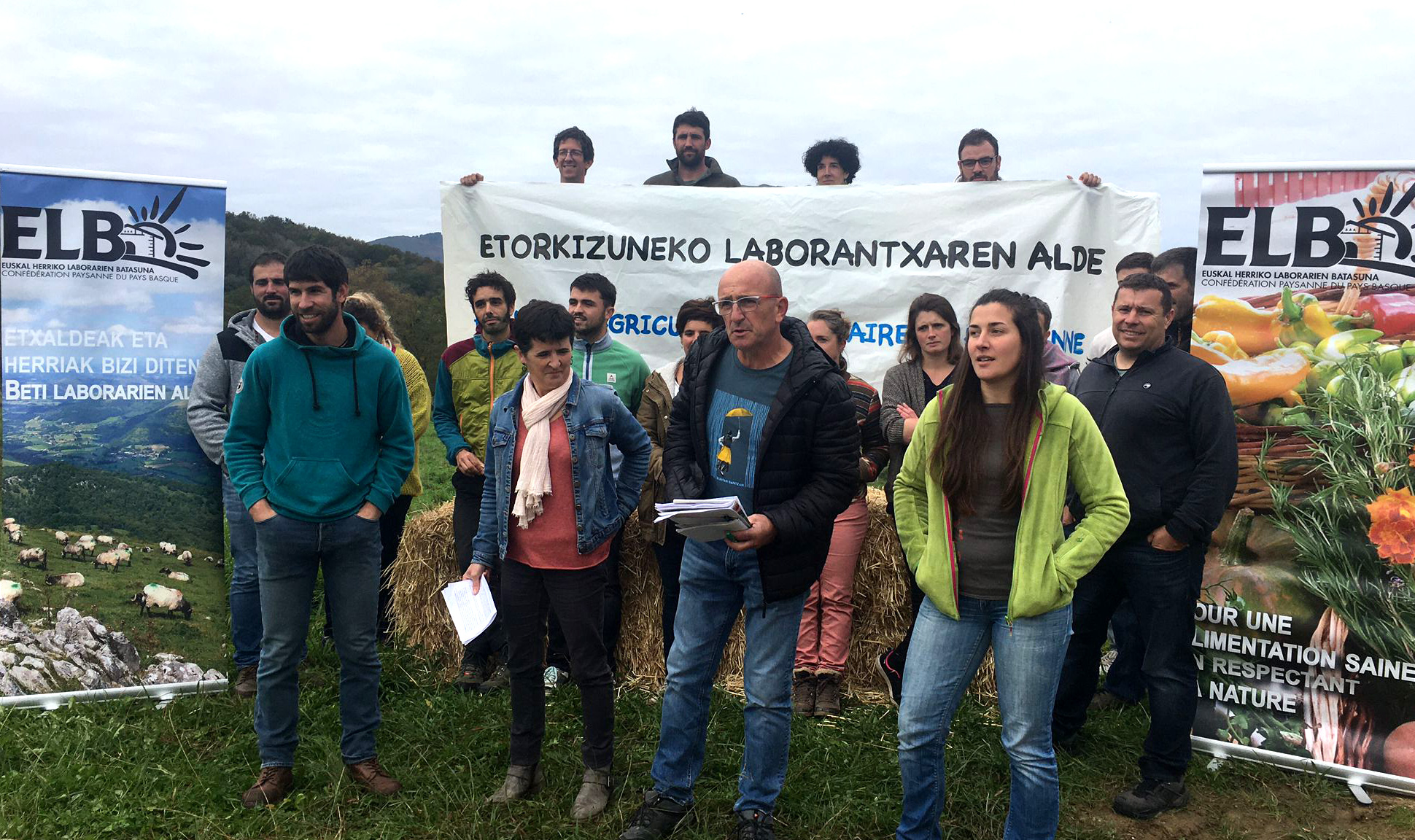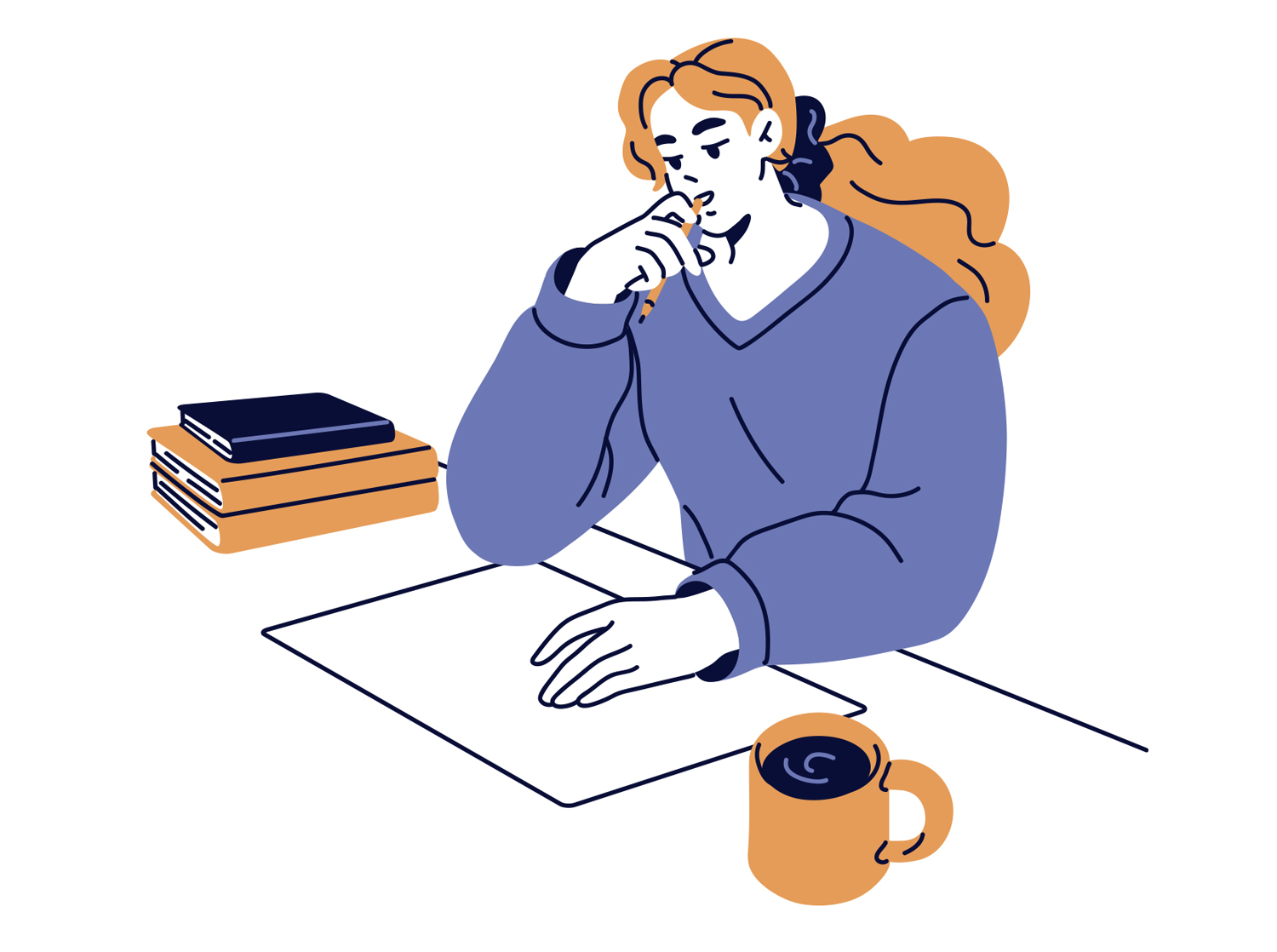Self-managed telecommunications network
- It is a free and open telecommunications network Guifi.net that does not exclude rural areas. Beyond offering cheaper Internet, network control is left to users. With the Catalan model as the central axis, Euskal Herria has also begun its journey.
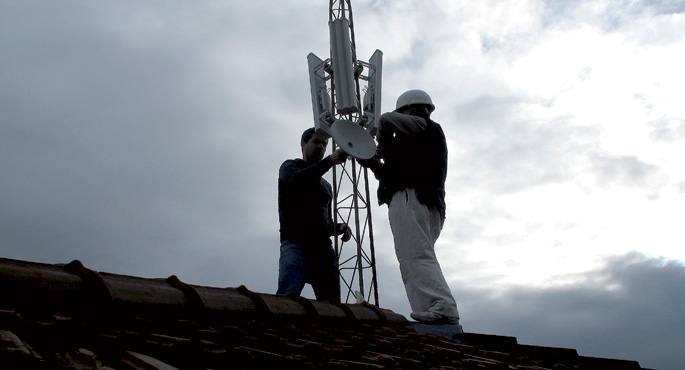
You pay 50 euros a month for having the internet at home. In addition, they have forced him to sign a contract for twelve months. If you want to navigate to 100 Megas, you have no other option. We adapt to the rules of the telecommunications companies that control the network, convinced that no one will offer us better services. In addition, people living in neighborhoods and hamlets away from the center are outside the play area. They say it's too expensive to put the broadband connection up there.
However, some entrepreneurs are opening paths to escape this dependency, rather than leaving culture and software free to the mercy of telephone operators seeking to obtain an economic profit and octopus with tentacles like Google for the telecommunications network to be controlled by users. In the Basque Country Guifi.net the members of the project are pioneers.
It is a free, open and neutral network Guifi.net. You can connect to anyone with no connection speed limit and no membership contracts that bind us for several months. By operating horizontally, every user can see, manage and develop the structure of the network.
It offers free or much cheaper Internet Guifi.net, but it is not a priority, but it complements the largest possible number of spiders, which will connect urban centers and rural areas and offer varied resources: IP telephone network (to speak for free among users), streaming radio broadcasts, chat and email services, file sharing media, etc.
The project started in Catalonia and it has the largest dissemination: About 50,000 users have joined the initiative, which consists of connecting each house, neighborhood to neighborhood, region to region, and their nodes or antennas are gradually connecting the whole country with wave connections.
That is the goal. Connect local communities first and progressively to larger and larger areas. In Hego Euskal Herria it has also begun to take steps Guifi.net, especially in Gipuzkoa, at the initiative of the Gipuzkoa Share association. Asier Garaialde, who works as coordinator, has given us the basic explanations about the project.
Sharing costs and solutions
To connect to Guifi.net you need the supernode (wave repeater), the node (antenna) that users will install on the roof, and the router (you can set the one we have at home) and the computer that will connect to it by cable. Users are in charge of buying, installing and maintaining such devices, to which the Foundation Guifi.net offers assistance. If someone sabotages the network, the damage will be solved quickly, because the organization is not so hierarchical, it is easy to find alternatives. Connect telematic networks Guifi.net. Not so for mobile devices. “The frequencies used by operators are proprietary,” explains Garaialde: “This business moves a lot of money and they have it very controlled. But since they had to free the Internet, the same will happen for mobiles.”
In order to share the facilities and share the maintenance costs, it is best for the neighbours of the same building to reach an agreement and meet the needs of all with a single antenna. With one example, Dabid Martínez, a member of the cooperative Gau de Barakaldo who is developing the project Guifi.net explains: “Think that in your portal you are ten neighbors and that you have purchased an Euskaltel connection of 100 megas per 100 euros. Well, if the contract is split between each of them, each of them would get 10 megawatts per EUR 10 per month. It's enough to navigate. Euskaltel has used an effective strategy: ‘You need 150 megas,’ he says. But who needs a size connection? To download the universe yes, but you do not need to read the emails, download a film or watch a video! There’s no reason to pay EUR 60 a month, it’s amazing.”
Garaialde has made it clear to us Guifi.net that it is not an alternative to the Internet: “The internet is present all over the world. It is not possible to create a size network. But in an area, whether in the neighborhood, in the village, in the region or throughout the Basque Country, we can communicate without using the Internet.” In the words of Martínez, the Internet is offered as a service: “For me it’s collateral damage. The most important thing is that from Bermeo you can send an email to Irun without going over the Internet, or share a film among the neighbors without using P2P networks.” After hearing that Google Reader is going to be removed, he added that people have been agitated: “These kinds of tools are free because the product is ourselves. We have to find our own models, closing Reader should not matter to us. If there are no benefits in the future, the Gmail service will also be deleted. Our whole life is there. With Guifi.net we would manage email by ourselves.”
Arrival in rural areas
When they talk about the whole of the Basque Country, they place particular emphasis on the need to connect rural areas. “If you ask to put the Internet in a rural neighborhood, the commercial operators answer no, that the cost would be too high,” Martínez regrets. “But the installation of the infrastructure is not as expensive as they say, an antenna does not cost 10,000 euros.”
In the Tolosaldea region of Gipuzkoa, the Tolomendi Rural Development Association is undertaking a stimulus task: “Big operators have no interest in moving their services to small towns, refuse to put the infrastructure because they seek the maximum economic benefit possible,” explained Tolomendi manager Iker Karrera and ICT technician Joxi Balerdi. “In some areas it is not possible to get a good internet service and with Guifi.net we want to fill these gaps. Once the infrastructure has been established, maintenance costs are very low.”
In the Gaztaño district of Errenteria, for example, users pay around 5 euros a month. The residents of the same building paid 150 euros for the infrastructure and were evicted from their homes. They hired the ADSL line of Euskaltel of 50 megas and none of the 40 users have had problems. By decision of the Assembly, the services of downloading P2P files, such as eMule, have been blocked and anyone who wants to download the material will have to pay an ADSL. “The goal is for people with limited income also to be able to check the email or read the press,” the project promoters said.
On the other hand, in Martinez, “users who have joined the Ortuella redecision Guifi.net have a file server where they can share movies, songs or documents. In the next phase we want to contact the different social agents of the municipality to have a kind of intranet that allows them to exchange information between them through the network controlled by them”.
Another example is the network that has brought together thirteen villages in the Navarre valley of Txulapain. Or the case of Barrón, an Alavesa town where a dozen people live. “To speak from the mobile phone we have to go out into the street, but Guifi.net and the Internet are at home,” they said on the project’s website.
“Our intention was to have the project funded at 100% and at the moment we have achieved at least 70% of the Gipuzkoa Council,” said Tolomendi members. “With three antennas for each people, we are talking about an investment of about 6,000 euros.” In the words of Martínez, it is very important that public administrations internalize the reflection on free software: “We have technology and knowledge, but no money.”
Waves as a source of concern
The most worrying thing about users Guifi.net is the electromagnetic radiation emitted by the network. “It is logical that there should be a concern about the waves, but before it runs out, the data should be known,” explains Garaialde. He explains that his goal is to create a network, whether it be wireless waves or fiber optics. “We’re talking about waves because it’s the cheapest and easiest way to connect. If we want to socialise the project, the cost must be as low as possible. However, it is a subject that we take very much into account, and if we see that one day we can work with fiber optics, then... In Catalonia, for example, they have started using fiber, but many more users already have a developed basic network.”
To “deal with misinformation” and solve the public’s concerns, project promoters Guifi.net have collected data on the impact that Wi-Fi antennas can have on us. “As of today, it is not scientifically proven that electromagnetic fields produce cancer,” we read on the introductory page.
“But what needs to be shown is not that the waves are harmful, but that they do not really do harm,” Garikoitz Perurena wrote. on the blog. “And we still cannot say that the electromagnetic fields that use mobile phones or wifi infrastructures do not affect us.”
As for the potential damage of the waves, scientists disagree and there is no medical protocol that diagnoses them. In any case, Perurena has called for "prudence" in line with what the European Union says: “If it is not clear that something is not going to cause harm, the Prudence Principle must be applied, requiring regulations corresponding to the emission level, so that these possible damages do not occur.” In the case of diesel or lead it is possible to demonstrate that they have a negative effect, but research on electromagnetic radiation is expensive and many companies are not interested in the data. Short-term effects studies have been carried out and the results do not generally lead to worrying conclusions. However, according to some experts, measurements should be carried out in the long term, as damage could occur over time.
Garaialde tells us about the BioInitiative report, which uses anti-waves as an argument: “By law, in almost all of Europe antennas can emit up to 60 volts of intensity. In Navarre, La Rioja and Catalonia the limit is 41, but the report points out that the maximum area level should be 0.6 volts. They are 60 excesses and 0.6 deficient. We couldn't have cell phones, because in addition to our waves, we'd get those from others. According to the report, it is not possible to verify that the waves are harmful. However, the scientists who carried out the study have recommended, as a preventive measure, to reduce the intensity of radiation.”
Members of the Tolomendi Association add that the waves emitted by Guifi.net are below the permitted level of intensity: “We all take mobile phones and experts say the waves they emit are much stronger, even the wireless phone waves of the houses, the interphones we put children by the bed, etc.”
“We are not in favour of the waves,” Garaialde stressed. “Our intention is to ask administrations to lower the permitted radiation limit, but operators will press for this not to happen, because they should make large investments, for example with more repeaters, to keep the signal extension less intensively.”
Without neglecting “logical concerns” about waves, the experiences so far have shown that it is more than an alternative to the Internet Guifi.net. It is a project that is taking small but important steps on the road to the creation of the largest possible autonomous network, and that should make us reflect on the rules laid down by the operators.
Euskal Herriko Guifi.net sareak lurralde osoa hartzea du helburu, eta sustatzaileek diote Lapurdi, Nafarroa Beherea eta Zuberoara iristen saiatuko direla. Tentuz ari dira, ordea, telekomunikazio legediak desberdinak baitira muga administratiboaren bi aldeetan. Nondik hasi jakiteko Tolosako (Okzitania) Tetaneutral proiektuko kideekin jarri dira harremanetan.
Guifi.net operadore gisa eratua dagoen fundazioa da. Babes legala ematen dio horrek. Euskaltelek edo beste edozein enpresak dituen eskubide berberak ditu. “Telefonia operadoreek indar handia dute, eta Espainiako telekomunikazio legeak baimena ematen die antenak nahi dituzten lekuan paratzeko”, azaldu digu Garaialdek. “Guri ere bai, baina kalterik txikiena egingo duten lekuan jartzen ditugu”. Beste operadoreen antenak baliatzen ditu Guifi.net-ek. Europako legediak dio azpiegituren erabilera arrazionala egin behar dela, operadore desberdinen dorreak ezin daitezkeela elkarren gainean egon, garai batean bezala. Konpainia batek errepikagailua jarriz gero, gainerakoek hura erabiltzeko aukera izan beharko lukete. “Argi dugu, dena den, enpresa horiek ez direla gure lehiakideak”, dio Martinezek. “Bezeroak beste batzuk dira, izan norbanako, enpresa, elkarte edo administrazio publikoak. Operadoreek Internet eskaintzen dute, eta guk beste era bateko zerbitzuak”.
Palestinan genozidioa, Europan gerra eta potentzia nuklearren artean tentsioa. Ez daukagu berri on askorik emateko, baina bada bat, hondamendi orokorretik eratorria, aipatzea merezi duena: aldeko baldintzak sortzen ari dira kontrainformaziorako, informazio independenterako,... [+]
Zer jakin behar dut? Norekin erlazionatu behar dut? Non bizi behar dut? Ardura horiekin gabiltza gizakiok gure gizarteen baitan bizitza on baten ideia bizitzeko bidean. Ondo erantzuten ez badakigu, bazterretan geratuko garen beldurrez.
Joan den astean, kanpoan geratzearen... [+]
Zerbait egin beharra izan liteke aurtengo Argia Sarietan garaikurra jaso berri dutenen oinarria. Zapalkuntzaren, bazterkeriaren, ahanzturaren aurrean antolatzearen erabakia hartu izana. Edo ilunetik argia ateratzea, zirrikituak bilatzea eta komunitateari eskaintzea. Balio... [+]
Erretiratu berri den lankide-ohi baten omenez, Historiako irakaslea. Bejondeizula!
Hezkuntza-legeek azpimarratzen dute zein garrantzitsua den ikasleengan pentsamendu kritikoa sustatzea. Baina irakasle-klaustroak, garai batean ideien eztabaidarako eta proposamenak... [+]
Vietnam, February 7, 1965. The U.S. Air Force first used napalma against the civilian population. It was not the first time that gelatinous gasoline was used. It began to be launched with bombs during World War II and, in Vietnam itself, it was used during the Indochina War in... [+]









